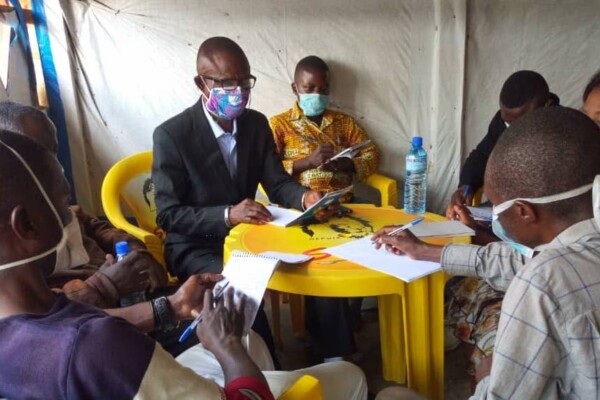
Supporting mining cooperatives in Beni
November 9, 2020The population of Beni Territory has been victim of deadly violence since 2014, following the presence of national and foreign armed groups such as the Allied Democratic Forces (ADF) rebellion and Mai Mai groups. The stabilisation project ‘Ensemble pour Beni’ aims to address insecurity and promote stability in the territory through a variety of initiatives, including a pillar focusing on ‘relaunch
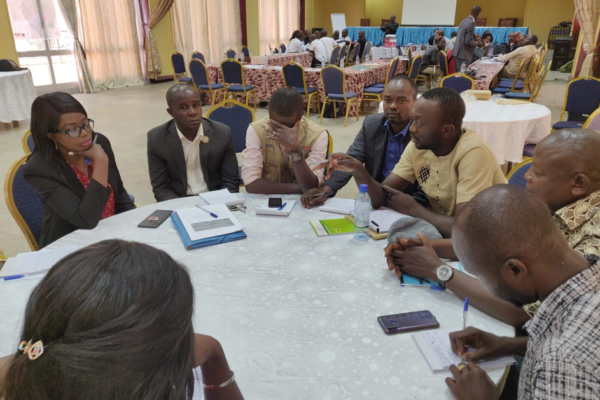
Mapping ASM sites in the Central African Republic: Official Presentation in Bangui
February 3, 2020In January 2020, IPIS presented the results of its diagnostic report and mapping of artisanal and small-scale mining (ASM) sites and gold supply-chains in western Central African Republic (CAR) to national authorities and civil society organizations during a three-days’ workshop in Bangui. The objectives of the mapping exercise are to support the CAR Ministry of Mines and Geology (MMG) and other k
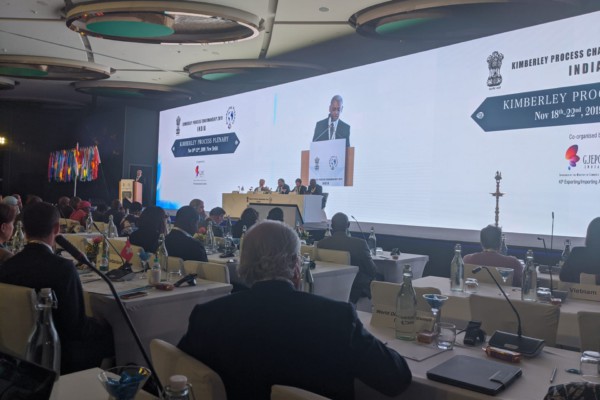
Conflict diamond certification scheme unable and unwilling to reform
November 22, 2019“Conflict diamond certification scheme unable and unwilling to reform” Today, another three-year reform cycle of the Kimberley Process came to an end without meaningful change. Participating states could only find consensus on insignificant changes to the scope and governance of the scheme. They once again failed to effectively protect communities in diamond mining areas from ongoing abuses. In th
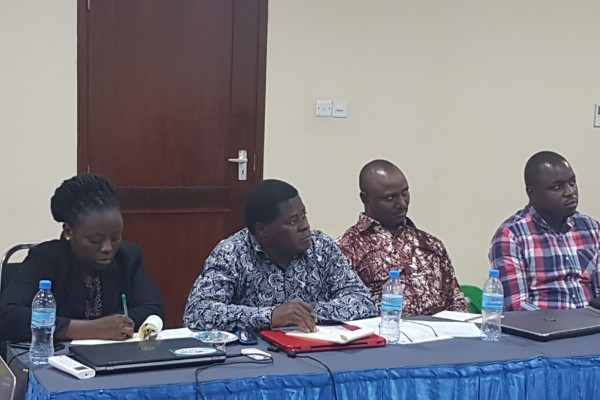
Launch of the second “Voices from Tanzania” series: Business and Human Rights studies with a focus on land rights and environment
July 31, 2019In 2019, Business and Human Rights Tanzania (BHRT), the Tanzanian Commission of Human Rights and Good Governance (CHRAGG) and the International Peace Information Service (IPIS) will collaborate again with Tanzanian civil society organisations in its partner series “Voices from Tanzania”. In its the first volume , the “Voices from Tanzania” publication covered a diverse range of human rights topics
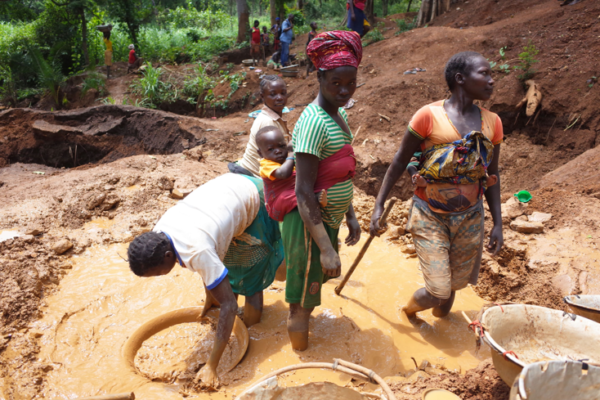
Mapping ASM sites in the Central African Republic: An update from our field teams
July 2, 2019Since February 2019, IPIS is partnering with the Artisanal Mining and Property Rights (AMPR) project from the U.S. Agency for International Development (USAID) to increase awareness and understanding of the opportunities and challenges of establishing responsible gold supply chains in the Central African Republic (CAR). As part of this project, IPIS is supporting the Ministry of Mines in mapping a
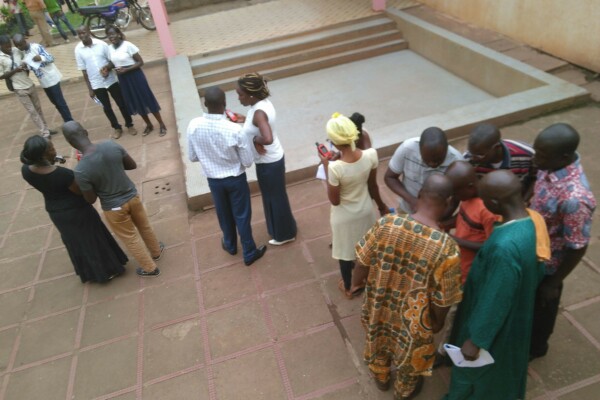
New project of mapping artisanal and small-scale mining sites in the Central African Republic
May 2, 2019Following a successful training in Bangui with members from civil society organizations and field officers from the Kimberley Process focal point at the Ministry of mines and geology of the Central African Republic (CAR), IPIS will start field based research to map artisanal and small-scale gold and diamond mining sites in Western CAR. This study will focus on quantitative research through Mobile

Kufatilia: a new Incident Monitoring Mechanism for Gold Supply Chains
December 4, 2018“Today a man was killed in a pit collapse in an artisanal mining site near Numbi.” Civil society organizations, working to improve living conditions of artisanal and small-scale miners in Eastern DR Congo, regularly receive this kind of text message. Capture d’écran du système de Suivis des Incidents de l’Or (SIOr) Since a few weeks, incidents linked to the production, transport and selling of mi
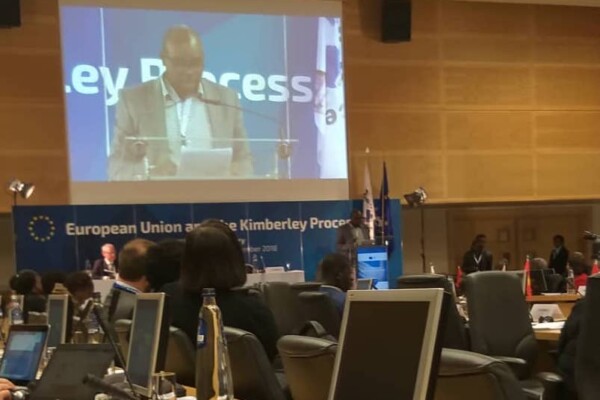
KP Civil Society disappointed by resistance to reform in the Kimberley Process
November 16, 2018The Kimberley Process (KP) Civil Society Coalition (CSC) pushed hard for reform in the 2018 KP Brussels Plenary, with very concrete proposals, amongst others on changing the definition of conflict diamonds beyond the limited and outdated scope of rough diamonds financing rebel movements. The CSC, together with industry (World Diamond Council) and Canada made a realistic proposal for a wider defini
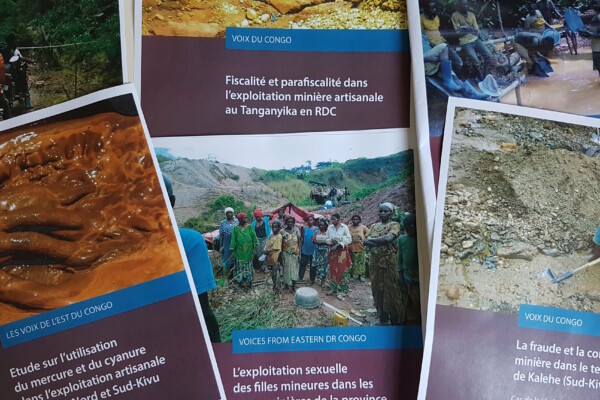
Strengthening local voices: discover IPIS’ partner publication series “Voices from the South”
September 3, 2018Since 2017, IPIS has been closely collaborating with civil society actors from central and east Africa who want to share their perspective on subjects related to IPIS’ work. Their hands-on experience, unique knowledge and access to information offer local insights relevant to a large audience. With the editorial support from IPIS, local partners are encouraged to write down their research. This ha
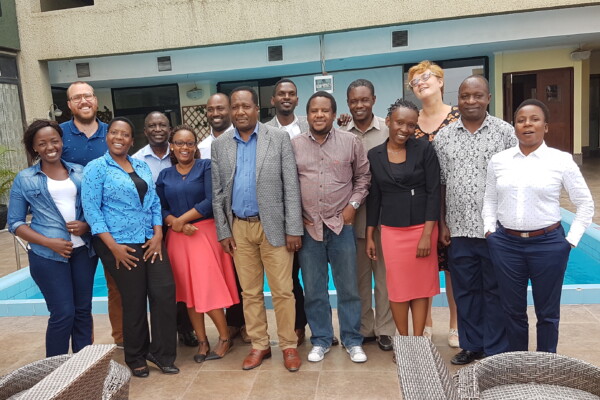
Training workshop: “Field Research and Report Writing on Business and Human Rights”
August 22, 2018At the start of August 2018, five Tanzanian civil society organisations gathered in Dar es Salaam for a three-day training on field research and report writing. The training forms part of the EU-funded project ‘Improving monitoring, research and dialogue on Business & Human Rights in Tanzania’ which is implemented by IPIS, the Tanzanian Commission for Human Rights and Good Governance (CHRAGG),
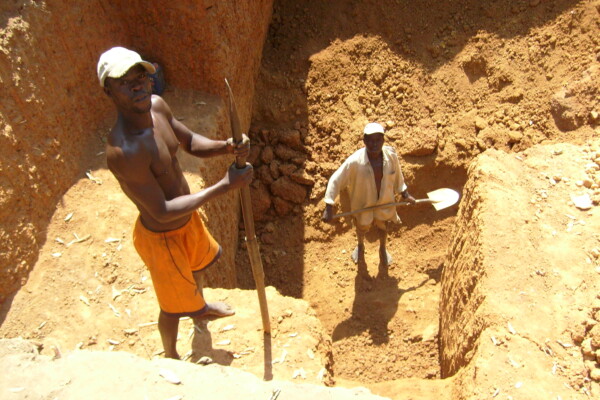
Kimberley Process intersessional meeting: civil society coalition calls for meaningful reform on definition of conflict diamonds
June 29, 2018At the Kimberley Process Intersessional Meeting, held in Antwerp from 18-22 June, the KP civil society coalition (KP CSC) called for meaningful reforms, on the scope of the definition of conflict diamonds, on the KP’s governance structures, and on internal controls on governments to ensure a clean, conflict-free and legal diamond supply chains. The KP CSC is dismayed over the lack of progress
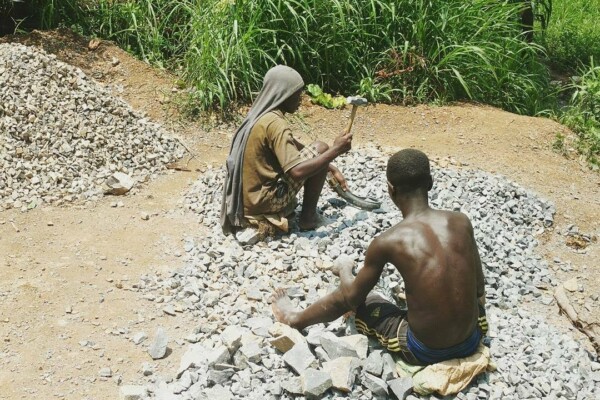
Mobile data collection on mining sites in Kigoma, Tanzania
February 26, 2018IPIS is undertaking a large-scale mobile data collection exercise on operational, socio-economic and human rights aspects of artisanal and industrial mining in northwest Tanzania. Building on this baseline data, IPIS will develop and implement a phone-based incidents reporting mechanism for local and mining communities. With better and more accessible data, IPIS aims to contribute to improving the
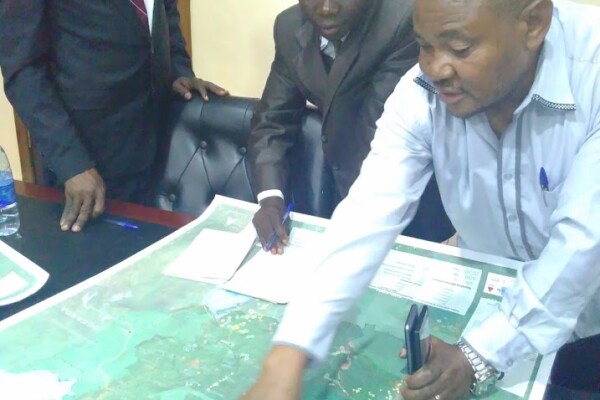
Training and workshop on mapping artisanal mining in Eastern DRC
February 9, 2018(French version below) 2373 Mining sites visited, including 470 visits in the last thirteen months. 300 Roadblocks visited on a total of 798 mapped roadblocks. More than 18 000 km travelled by plane, bus, motorbikes and by foot… These are a few of the impressive results achieved by the twelve IPIS researchers in Eastern DRC. Late January, a workshop held in Goma gave IPIS researchers an opportun
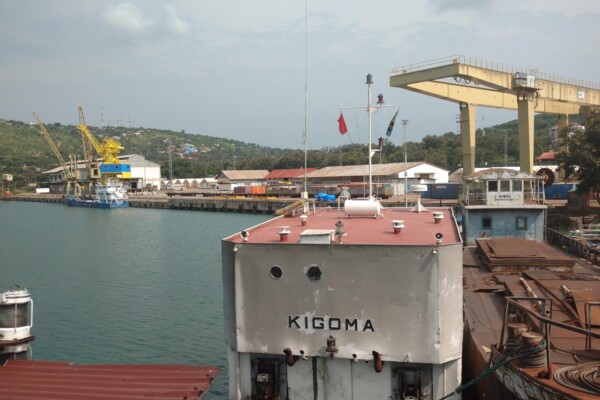
Improving monitoring, research and dialogue on Business and Human Rights in Tanzania
February 2, 2018IPIS was in Dar es Salaam to launch its new project on Business & Human Rights with the Tanzanian Commission for Human Rights and Good Governance (CHRAGG) and Business and Human Rights Tanzania (BHRT). Tanzania is bearing the fruits of the accelerating economic growth and rising influx of foreign direct investment (FDI), but is also struggling with the enormous challenges in the ar
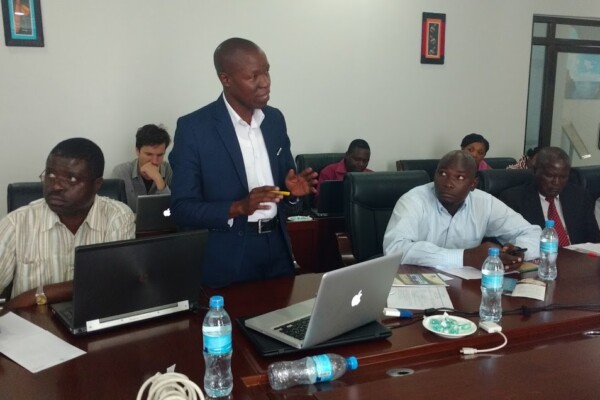
Training and workshop on mapping the socio-economic and human rights impact of mining in northwest Tanzania
November 14, 2017On Monday 23 October, IPIS organised a workshop in Mwanza to launch the data collection phase of its mapping project on the socio-economic and human rights impact of mining in northwest Tanzania. This served to introduce the project and obtain additional input and feedback on the most pressing information gaps in the sector. The workshop was organised for a broad audience of Tanzanian mining and h

IPIS launches e-learning for a thorough understanding of the global Arms Trade Treaty
September 12, 2017As governments gather in Geneva to discuss how to regulate the global arms trade by implementing the Arms Trade Treaty, the Belgian Research Group IPIS is launching a set of self-learning digital modules to promote understanding of the Treaty. The e-learning modules are designed to support the early ratification and effective implementation of the Treaty. The modules can be accessed in English, Fr
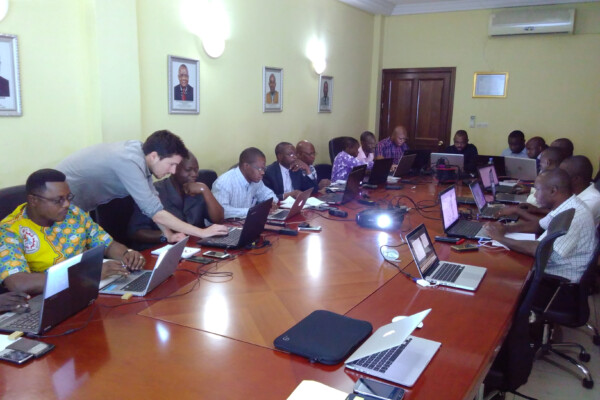
Capacity enhancement workshop on cartography with DRC mining authorities
May 16, 2017Capacity enhancement workshop on cartography with DRC mining authorities In the framework of its long standing partnership with DRC mining authorities, IPIS held a workshop in Kinshasa from May 8th to 12th, engaging with technical staff of ‘Cadastre Minier’, ‘SAESSCAM’ and ‘Division des mines’. The workshop focussed on Open Source solutions for mapping and web-mapping, such as ‘QGIS’ and ‘qgis2web
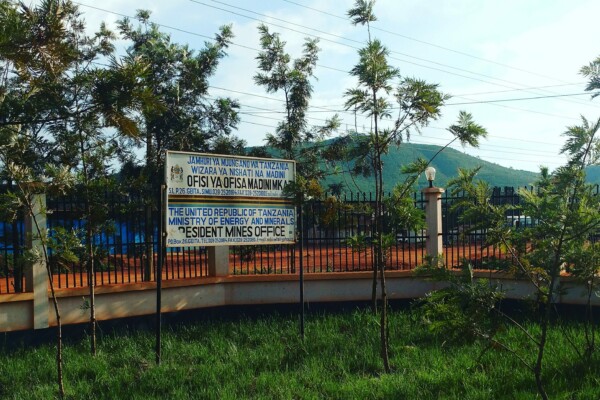
New IPIS project on mining, human rights and digitalization in Tanzania
March 13, 2017From late February to early March, two IPIS researchers were in Tanzania to lay the foundations for a new project funded by the Belgian development cooperation. It concerns a mapping of the socio-economic and human rights situation of artisanal and industrial mining in Northwest Tanzania. The project will run for 30 months (until June 2019), and has two main phases. In a first phase, IPIS will und
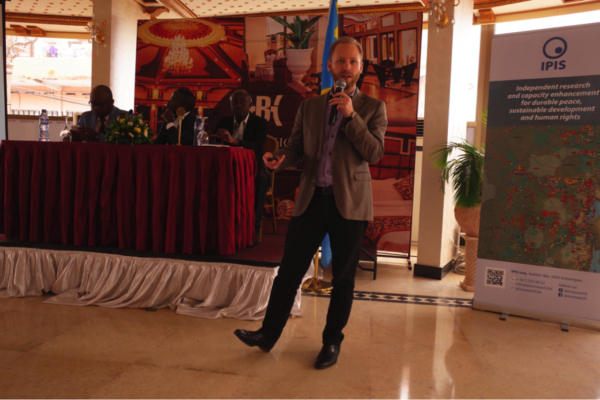
Launch of SAESSCAM database on artisanal and small-scale mining
March 3, 2017On February 23rd, IPIS presented in Kinshasa the results of a two years project done in partnership with Pact and Estelle Levin Ltd to support the activities of SAESSCAM (“Service d’accompagnement et d’encadrement du Small-scale mining”), a service of Congolese Ministry of mines. During this project IPIS developed and launched SAESSCAM ASM database, a database to register production and socio-econ
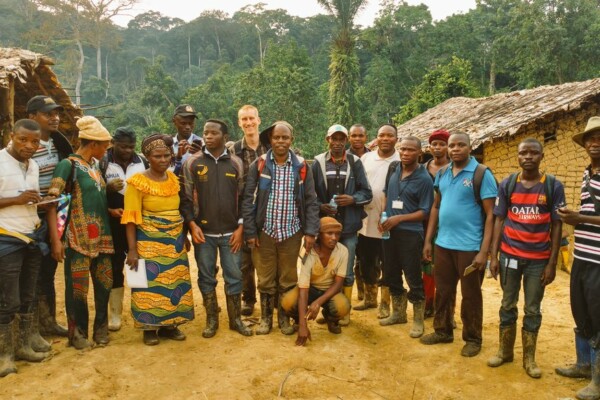
Training on cartography and artisanal mine site inspections in Mambasa
December 23, 2016French version below – version française ci-dessous Training on cartography and artisanal mine site inspections – Mambasa, Ituri, DRCongo From 10 to 14 December 2016, IPIS organised a training on cartography and artisanal mine site inspections in Mambasa, Ituri. The aim of this training was to launch and prepare the ground for IPIS’ artisanal gold monitoring pilot, financed by the Public-Private A

